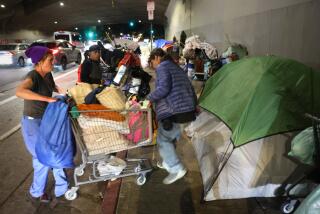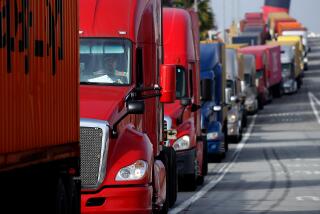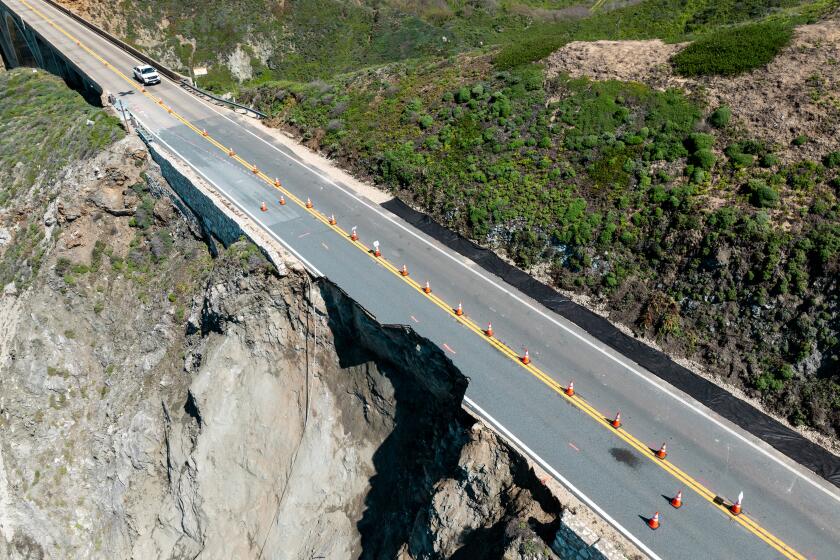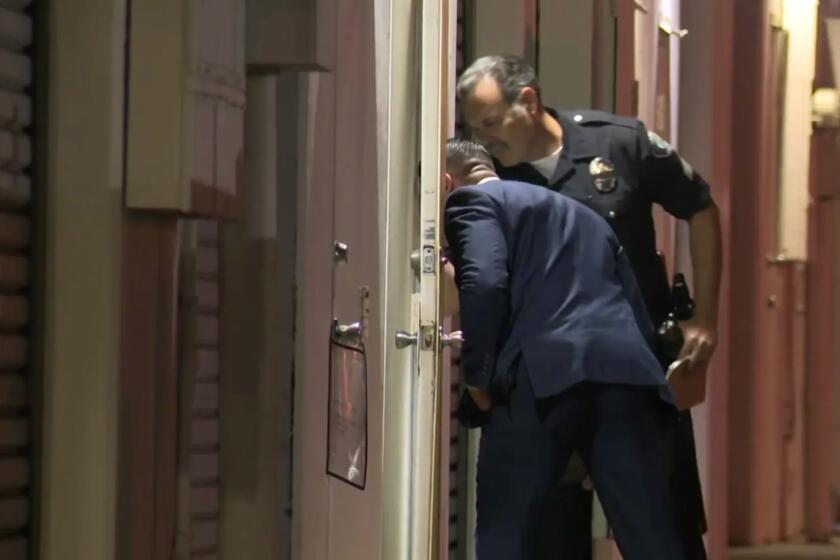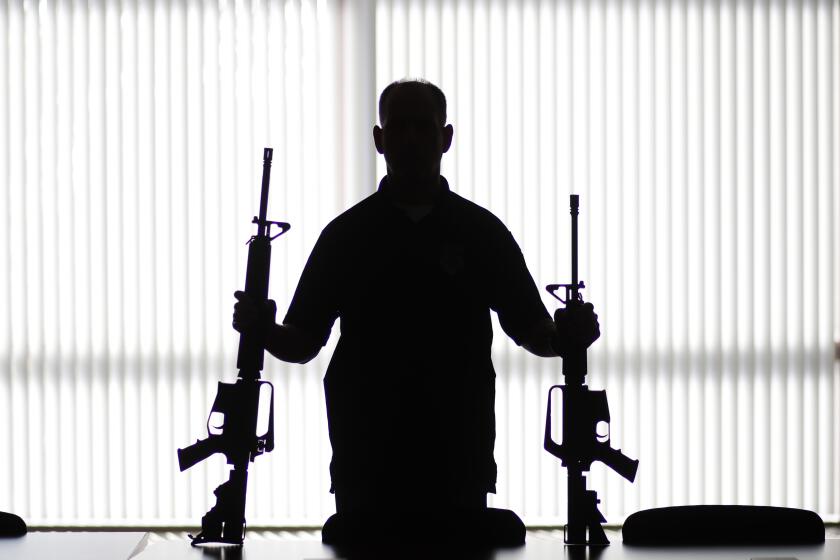No naps and other rules for trash truck drivers could cost L.A. $26 million
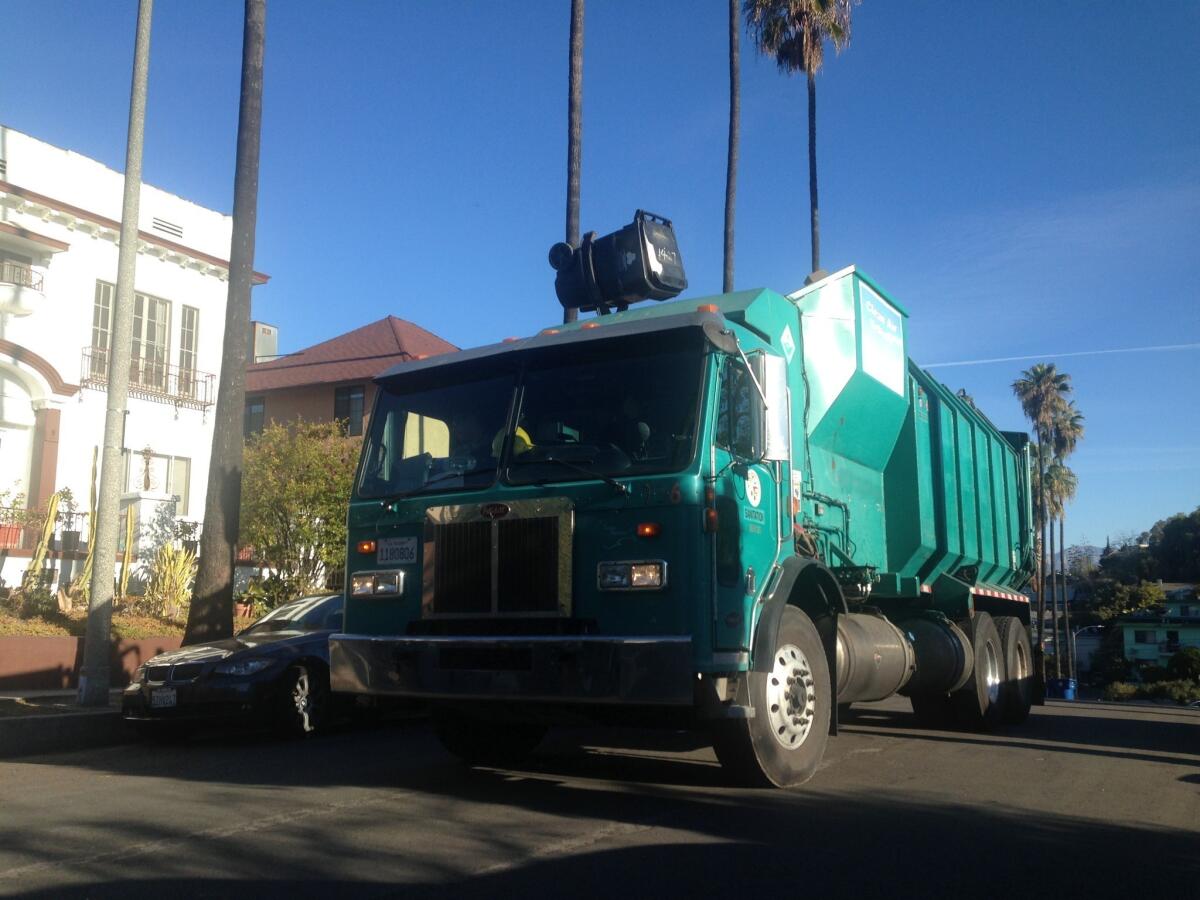
Los Angeles is facing a $26-million legal payout over break time rules that, among other things, prevents city trash truck drivers from napping.
The City Council, meeting behind closed doors, moved ahead Wednesday with the payout, designed to end an eight-year-old class-action lawsuit.
More than 1,000 trash truck drivers would receive an average of $15,000 each in back pay, according to Matthew Taylor, their attorney.
He argued they effectively were required to remain “on duty” — but not paid — during nine years of meal breaks. Taylor said the no-nap rule created dangers on the road involving heavy city garbage rigs.
“It’s a hazard to the public if you have commercial truck drivers who are fatigued and are not allowed to take a nap during their breaks,” he said.
In addition to banning naps, the Bureau of Sanitation also prohibited drivers from congregating in large groups or traveling to locations away from their pickup routes during lunch breaks.
Those rules were abandoned last summer. City lawyers warned council members they might have to pay as much as $40 million if the court battle over the drivers’ work rules continued.
A Superior Court judge and a state appeals court panel have already sided with the drivers.
City officials said the contested work rules were intended to guard the public image of the trash collection service and enhance safety. By limiting the number of workers who could gather in one spot for a meal, the city kept large numbers of oversized trash trucks from being parked together in a single neighborhood or in restaurant parking lots, said Enrique Zaldivar, who runs the sanitation bureau.
The no-sleep rule, Zaldivar said, was imposed to ensure members of the public would not see trash truck drivers asleep in or near their vehicles.
“It’s impossible for the general public … to know whether a driver is on duty or not while sleeping,” he said. “So we felt it was prudent to not have any sleeping occur when the driver is in public view, or during any time that could be construed as on duty.”
ALSO:
Nightclub beating: Experts say secret taping may not fly in trial
Amber Alert: Carjacked vehicle in Oakland now described as sedan
New San Diego mayor on disgraced Filner: ‘We were better than that’
More to Read
Start your day right
Sign up for Essential California for news, features and recommendations from the L.A. Times and beyond in your inbox six days a week.
You may occasionally receive promotional content from the Los Angeles Times.

